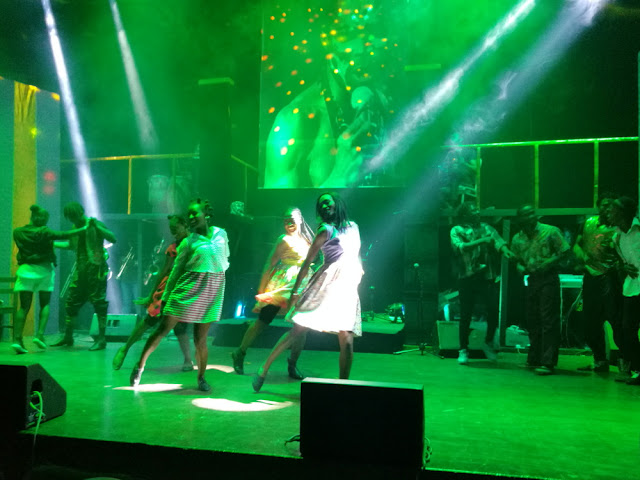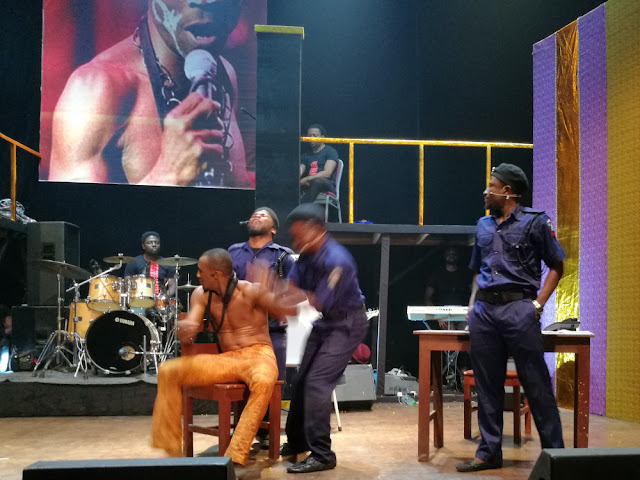 |
| Arese Amokpae in the role of Sandra |
This week is the week of
Felabrations. Many music events are celebrating the memory of
Fela Kuti across Lagos. Freedom Park has a series of Afro-beat concerts, same thing at the
New Afrika Shrine. And this year a musical called Fela - arrest the music, written by Paul Ugbede, in reference to the life of Fela, in Nigeria, during which Fela was a strong critic of the short-comings of successive governments and generals. State coffers where used to fill private pockets, especially with bubbling oil resources being the main government income. Theft, corruption were the essential ways to get rich for the happy few who in the meantime ignored the poverty and the stagnation of the masses.
The musical was played at Muson Centre, the classical musical institution of Lagos. It was musically directed by a Nigerian who graduated at the Muson center itself, Ayo Ajayi, therefore one of the first musical made in Nigeria. This was, in my view, a very good thing because the characters were really authentically nigerian and their nigerian-ness was what made the difference emotionally.
 |
| Fela's girls dancing |
The story described the early years of Fela, his lengthy parting from his mother at the airport on his way to the UK, his debut in London as a musical student in 60's (curiously illustrated by a choreography on a music from the 80's), his coming back to Nigeria with his wife Remi and 2 kids, the loss of his job as radio show programmer of a jazz show on the National Nigerian Broadcast and his departure to the US where he met Sandra, his muse that encouraged him to develop his true musical self and become aware of his african-ness. Back in Nigeria, the musical focuses on the tensed relationship with the government and the police who brought some cannabis to his place to arrest him, which he somehow swallowed leaving no evidence to the police. Furious they took him to jail and a judge decided he should have a stomach wash to be able to produce the evidence. Fela fought hard to refuse and he was kept in custody in hope that he would "shit the shit he had swallowed". Somehow with the complicity of over prisoners the police was unable to find the evidence they were looking for.
 |
| the man who had eaten the shit |
The last scene is about the assault of the Kalakuta republic by the army, his mother was thrown by a window from the 1st floor and had to be brought to hospital where she soon was to die. Girls were raped, people beaten-up, the place ransacked and burnt.
 |
| the assault on Kalakuta Republic |
The female characters were excellent musically and emotionally. The man playing Fela lacked some depth, he was the jolly fellow with well rounded muscles, but that's it. His youth friend JK was much stronger. Choreographies and lights were beautiful, the musicians excellent. Overall well worth going to watch it.




Comments
Post a Comment